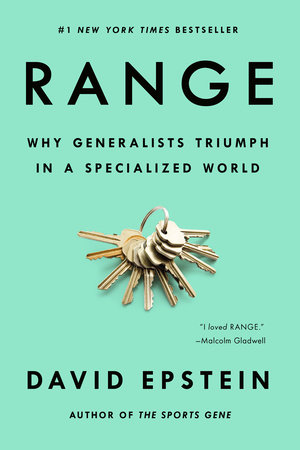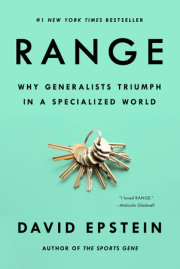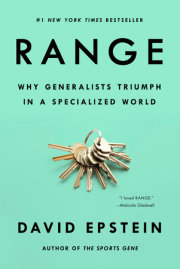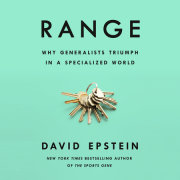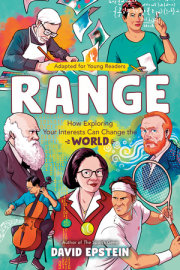Chapter 1
The Cult of the Head Start
One year and four days after World War II in Europe ended in unconditional surrender, Laszlo Polgar was born in a small town in Hungary-the seed of a new family. He had no grandmothers, no grandfathers, and no cousins; all had been wiped out in the Holocaust, along with his father's first wife and five children. Laszlo grew up determined to have a family, and a special one.
He prepped for fatherhood in college by poring over biographies of legendary thinkers, from Socrates to Einstein. He decided that traditional education was broken, and that he could make his own children into geniuses, if he just gave them the right head start. By doing so, he would prove something far greater: that any child can be molded for eminence in any discipline. He just needed a wife who would go along with the plan.
Laszlo's mother had a friend, and the friend had a daughter, Klara. In 1965, Klara traveled to Budapest, where she met Laszlo in person. Laszlo didn't play hard to get; he spent the first visit telling Klara that he planned to have six children and that he would nurture them to brilliance. Klara returned home to her parents with a lukewarm review: she had "met a very interesting person," but could not imagine marrying him.
They continued to exchange letters. They were both teachers and agreed that the school system was frustratingly one-size-fits-all, made for producing "the gray average mass," as Laszlo put it. A year and a half of letters later, Klara realized she had a very special pen pal. Laszlo finally wrote a love letter, and proposed at the end. They married, moved to Budapest, and got to work. Susan was born in early 1969, and the experiment was on.
For his first genius, Laszlo picked chess. In 1972, the year before Susan started training, American Bobby Fischer defeated Russian Boris Spassky in the "Match of the Century." It was considered a Cold War proxy in both hemispheres, and chess was suddenly pop culture. Plus, according to Klara, the game had a distinct benefit: "Chess is very objective and easy to measure." Win, lose, or draw, and a point system measures skill against the rest of the chess world. His daughter, Laszlo decided, would become a chess champion.
Laszlo was patient, and meticulous. He started Susan with "pawn wars." Pawns only, and the first person to advance to the back row wins. Soon, Susan was studying endgames and opening traps. She enjoyed the game and caught on quickly. After eight months of study, Laszlo took her to a smoky chess club in Budapest and challenged grown men to play his four-year-old daughter, whose legs dangled from her chair. Susan won her first game, and the man she beat stormed off. She entered the Budapest girls' championship and won the under-eleven title. At age four she had not lost a game.
By six, Susan could read and write and was years ahead of her grade peers in math. Laszlo and Klara decided they would educate her at home and keep the day open for chess. The Hungarian police threatened to throw him in jail if he did not send his daughter to the compulsory school system. It took him months of lobbying the Ministry of Education to gain permission. Susan's new little sister, Sofia, would be homeschooled too, as would Judit, who was coming soon, and whom Laszlo and Klara almost named Zseni, Hungarian for "genius." All three became part of the grand experiment.
On a normal day, the girls were at the gym by 7 a.m. playing table tennis with trainers, and then back home at 10:00 for breakfast, before a long day of chess. When Laszlo reached the limit of his expertise, he hired coaches for his three geniuses in training. He spent his extra time cutting two hundred thousand records of game sequences from chess journals-many offering a preview of potential opponents-and filing them in a custom card catalog, the "cartotech." Before computer chess programs, it gave the Polgars the largest chess database in the world to study outside of-maybe-the Soviet Union's secret archives.
When she was seventeen, Susan became the first woman to qualify for the men's world championship, although the world chess federation did not allow her to participate. (A rule that would soon be changed, thanks to her accomplishments.) Two years later, in 1988, when Sofia was fourteen and Judit twelve, the girls comprised three of the four Hungarian team members for the women's Chess Olympiad. They won, and beat the Soviet Union, which had won eleven of the twelve Olympiads since the event began. The Polgar sisters became "national treasures," as Susan put it. The following year, communism fell, and the girls could compete all over the world. In January 1991, at the age of twenty-one, Susan became the first woman to achieve grandmaster status through tournament play against men. In December, Judit, at fifteen years and five months, became the youngest grandmaster ever, male or female. When Susan was asked on television if she wanted to win the world championship in the men's or women's category, she cleverly responded that she wanted to win the "absolute category."
None of the sisters ultimately reached Laszlo's highest goal of becoming the overall world champion, but all were outstanding. In 1996, Susan participated in the women's world championship, and won. Sofia peaked at the rank of international master, a level down from grandmaster. Judit went furthest, climbing up to eighth in the overall world ranking in 2004.
Laszlo's experiment had worked. It worked so well that in the early 1990s he suggested that if his early specialization approach were applied to a thousand children, humanity could tackle problems like cancer and AIDS. After all, chess was just an arbitrary medium for his universal point. Like the Tiger Woods story, the Polgar story entered an endless pop culture loop in articles, books, TV shows, and talks as an example of the life-hacking power of an early start. An online course called "Bring Up Genius!" advertises lessons in the Polgar method to "build up your own Genius Life Plan." The bestseller Talent Is Overrated used the Polgar sisters and Tiger Woods as proof that a head start in deliberate practice is the key to success in "virtually any activity that matters to you."
The powerful lesson is that anything in the world can be conquered in the same way. It relies on one very important, and very unspoken, assumption: that chess and golf are representative examples of all the activities that matter to you.
Just how much of the world, and how many of the things humans want to learn and do, are really like chess and golf?
Copyright © 2019 by David Epstein. All rights reserved. No part of this excerpt may be reproduced or reprinted without permission in writing from the publisher.

